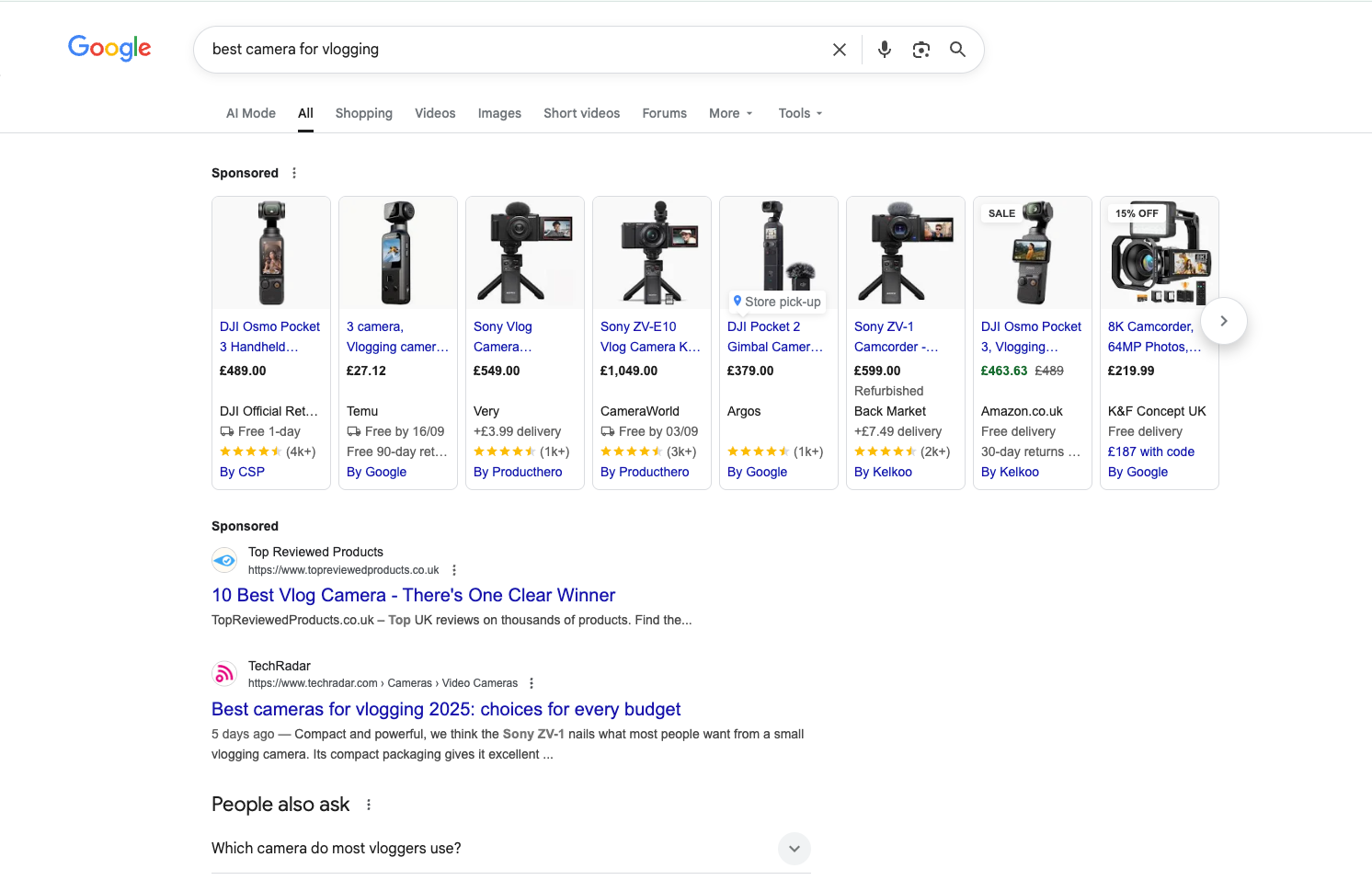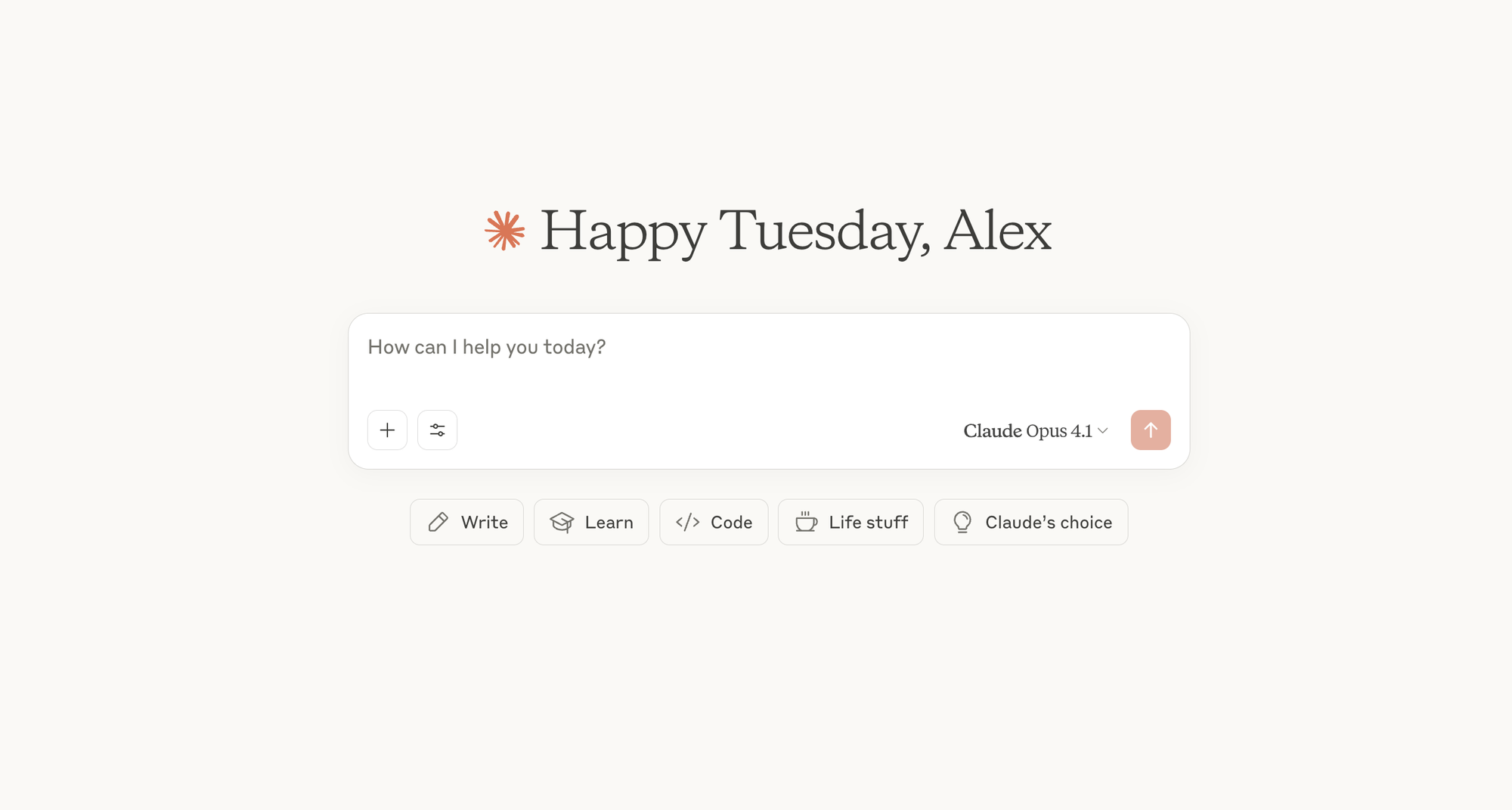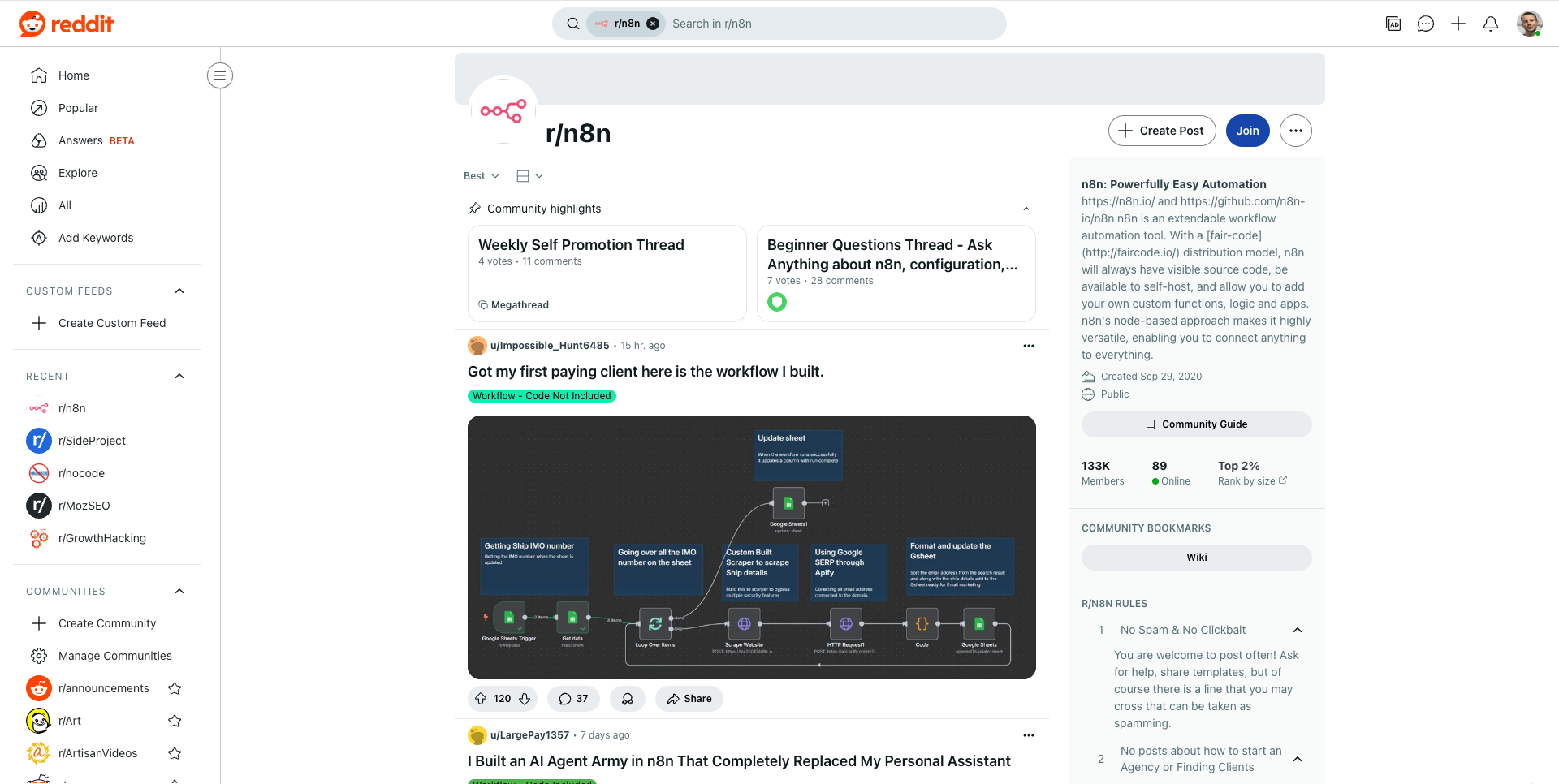AI and SEO: Revolutionising Your Keyword and Content Strategies

I used to spend the first Monday of every month in a spreadsheet hell of my own making. My SEO process involved exporting thousands of keywords from a top SEO tool like Ahrefs, then manually tagging and color-coding them into topic clusters. It was a slow, subjective process that felt more like art than science. My goal was a content strategy, but I usually ended up with a headache.
That process is dead now. It wasn’t a single piece of AI SEO software that killed it, but a gradual shift in how I use AI for SEO. This is the core of modern digital marketing. AI is not a magic button to "do SEO for me," but a tireless assistant that handles 80% of the data-heavy work, freeing me to focus on the 20% that requires human strategy. This use of AI is now standard; a 2023 HubSpot report found 84% of bloggers and SEO specialists are using AI and automation in their SEO strategies.
This isn’t about letting a robot handle your content creation. It’s about building a better system for thinking. For me, the real promise of AI SEO is moving from reacting to what ranked yesterday to proactively building for the search engine landscape of tomorrow. This evolution is necessary to meet rising user expectations for immediate, relevant search results. This change in my SEO workflow is the most significant one I’ve made in years.

Understanding AI in SEO: Beyond Basic Automation
At first, I thought AI in SEO was just about automating SEO tasks like writing meta descriptions. That’s simple, repetitive work. But that misses the point of using AI for SEO. The real transformation in engine optimisation comes from two core technologies: machine learning (ML) and natural language processing (NLP).
In simple terms, NLP gives the AI the ability to understand language context, not just keyword matching. It gets that "best camera for vlogging" and "YouTube creator camera setup" are asking the same question. Machine learning lets the AI analyse massive datasets, like the entire SERP for a Google Search query to identify patterns that correlate with high rankings. Considering a search engine like Google processes over 8.5 billion searches daily, this ability to leverage AI to analyse at scale is no longer a luxury for any SEO expert.
The old SEO way was a checklist: Did I use the keyword? Is the H1 right? The new way is a diagnosis: What is the underlying intent of this AI search? What related concepts does the search engine expect to see? I saw this when I stopped manually grouping keywords. I fed a list of 500 terms around "customer success platforms" into an AI model. In under a minute, it returned clear, intent-based clusters. The AI did in 60 seconds what used to take me half a day. The AI wasn't guessing; it was reflecting the structure of the existing search engine landscape. This is the power of generative AI. That’s the shift. It’s not just about doing old SEO tasks faster; AI can help you unlock a level of analysis that was previously impossible.

How AI Enhances Keyword Strategy and Content Creation
My approach to AI keyword research is less about discovery and more about structure. The big SEO tools on the market are still the best place to find raw keyword opportunities. The AI comes in to make sense of the chaos. Here’s the simple workflow I’ve settled on for my SEO and content efforts.
First, I start with a seed topic, like "product led growth." I’ll pull a big export of all related keywords from tools like Ahrefs or Semrush, usually a few thousand terms. I don't filter it much. Next, I feed that raw CSV directly into a large language model. I’ve found Claude 4 Opus works best for this because of its large context window; it can handle the big file. I use a specific prompt designed to turn the list into a strategic map for my SEO efforts.
My Prompt for AI Keyword Clustering:
"You are an expert SEO strategist and AI agent. I've uploaded a CSV of keywords related to [main topic]. Your task is to act as a keyword clustering AI tool. Analyze the entire list. Group them into semantically related clusters based on user intent. For each cluster, provide a descriptive name and identify the primary 'pillar' keyword with the highest search volume. This custom SEO will guide our content creation. Present the output in a clean, hierarchical format. Do not explain your process, just provide the output."
The result is a structured content plan. Instead of a flat list, I have 10-15 distinct topic clusters, each with a clear pillar keyword. This AI-driven audit tells me what pillar pages to create. A B2B SaaS company I know used this exact method. Their AI analysis of search data surfaced a cluster around "asynchronous team collaboration." It was a user need their product addressed but their SEO content did not. They built a pillar page and a series of articles, capturing significant traffic before their competitors did. This process, which you can manage with an all-in-one SEO platform, turns a daunting dataset into an actionable roadmap for any content marketing plan.

Predictive Analysis: Using AI for SEO Trend Spotting
One of the most promising areas of AI SEO is predicting what people will be searching for next. This is predictive SEO analysis. It's about finding leading indicators of interest before they translate into high search volume and competition.
I use the AI to sift through signals from different sources. For example, I might scrape discussions from niche Reddit communities. I can then feed that text into a model with a prompt like: "Analyse this text from a discussion among [audience type]. Identify emerging questions or new tools being discussed that are not yet widely covered. List the top 5 nascent topics." This helps me spot the "green shoots" of a trend. When I see a new SEO tool mentioned repeatedly, I know it is only a matter of time before it hits the mainstream search results. Creating AI content at this early stage is how you capture a topic before it becomes saturated.
Another practical approach is analyzing SERP volatility. Some AI-powered SEO tools can flag keywords where the top results are constantly changing. This is often a signal that Google itself is not sure what the best answer is for the AI overviews. This is an opportunity. If the ranking content is weak, a comprehensive piece has a high probability of sticking. The AI results from this audit change resource allocation, allowing me to make strategic bets to improve your SEO.
AI-Driven Content Optimisation Techniques
There is a common fear that SEO optimisation with AI means creating soulless, robotic content. For me, the opposite is true. By letting an AI writer handle the mechanical parts of on-page SEO, I can focus more on the human elements: the story and insights no machine can replicate. My workflow is an 80/20 rule: the AI handles 80% of the prep, and I focus on the 20% of creative execution.
Before writing an article with AI, I use an AI-powered workflow to create a detailed content brief. This SEO software analyses the top-ranking pages and extracts the core components for content optimisation:
- Optimal Structure: The common heading structure that users prefer.
- Key Entities: The related topics and concepts Google expects.
- Common Questions: The "People Also Ask" queries that need to be addressed.
- Word Count & Readability: A baseline target to aim for.
This brief, a cornerstone of SEO best practices, becomes my blueprint. The AI tool has done the competitive analysis, so I don’t have to. I can spend my time thinking about the narrative. While some stats show an AI title generator can boost CTR by 59%, I don't just accept the AI's first idea. I use AI to generate ten variations, then use my judgment. The goal of using AI tools is not to abdicate responsibility. It is to use the analytical power of AI to inform and accelerate human creativity and achieve the best SEO. This is the essence of effective engine optimisation.
The Future of AI in SEO: Your Role as Strategist
The future of AI SEO is not full automation; it's a hybrid model where the human strategist acts as an editor and architect. Our value shifts from manual labor to asking the right questions. I spend less time on keyword research and more time validating the output of an AI's cluster analysis. Human oversight should be the bottleneck; it's what prevents the internet from becoming a sea of homogenous AI-generated sludge. Our judgment is the scarce resource.
Integrating using AI for SEO into your own strategy doesn't require a massive overhaul. Here's how SEO teams can start:
- Start Small: Pick one part of your current SEO workflow that is slow. Is it keyword clustering? Is it creating content briefs? Start there.
- Augment, Don't Replace: Use an AI SEO tool to assist that single step. Compare its output to your manual process. AI tools to help SEO should make you more efficient.
- Refine the Prompt: The quality of the output from AI platforms like ChatGPT depends on the quality of your input. Tweak your prompts, add constraints, and give the AI a persona.
- Build a System: Once you have one step working, look for the next. Maybe the output of your AI clustering prompt becomes the input for your AI brief generation prompt.
The most effective AI system is the one you actually stick with. It’s about building a better process to make you faster, smarter, and more focused on the work that truly matters for your users and your search engine optimisation goals.
FAQ
How does AI improve SEO? From my perspective, it enhances SEO in three main ways. First, an AI SEO tool processes massive datasets faster than a human, turning a raw keyword list into a structured strategy. Second, the range of AI capabilities deepens content personalisation by understanding user intent, not just keywords. And third, the best AI SEO tools enable predictive analysis, helping you spot trends before they become competitive.
What is AI's role in keyword strategy? Its role is to handle the heavy lifting of analysis and organisation so a human can focus on strategy. An AI tool helps cluster keywords into meaningful topic groups and maps out content structures, providing a data-driven foundation for your content plan. This is where a good SEO platform shines. It shifts the strategist's job from data entry to decision-making.
How can AI predict SEO success? It cannot guarantee success, but an AI SEO solution can significantly improve your odds. AI does this by analysing leading indicators, like discussions in niche communities or volatility in Google Search results, to identify topics with growing interest but low competition. Many SEO agencies are building services around this. It’s not about seeing the future, but about using data from your Google Search Console or a technical SEO tool to make much more educated bets on where to focus your SEO content efforts for the best return. A comprehensive site audit using these AI tools can help pinpoint these opportunities.
